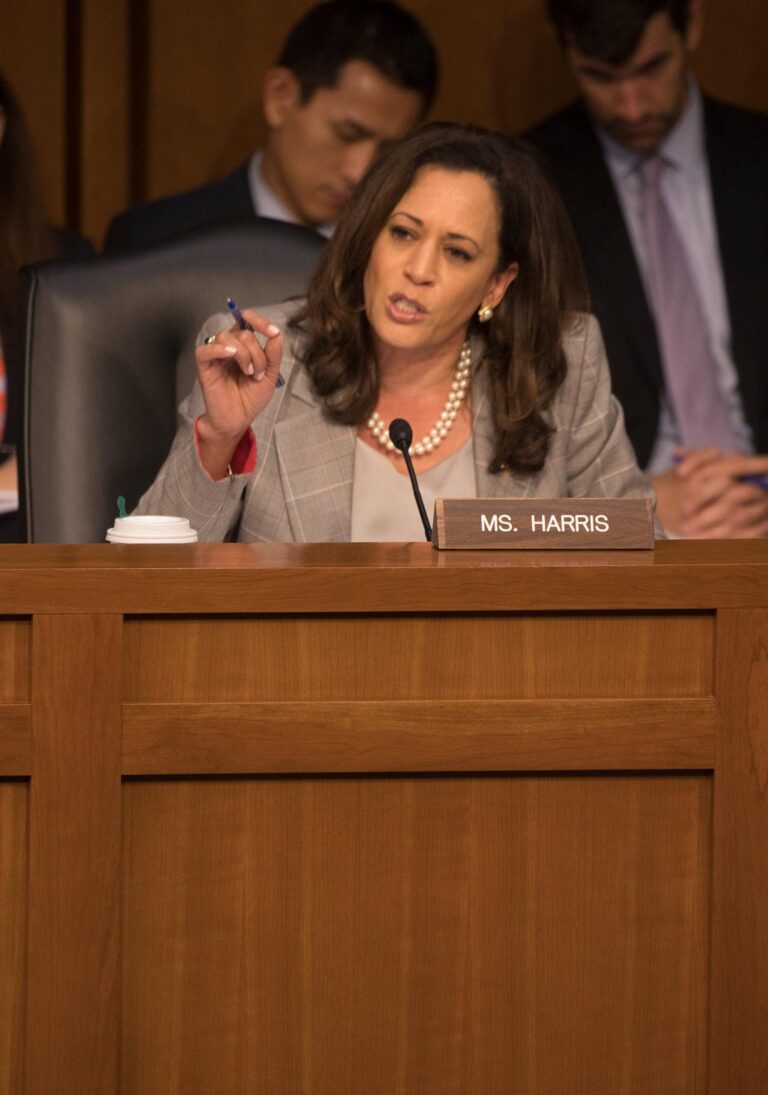Kamala HarrisŌĆÖs tenure as a prosecutor offers a revealing lens into the principles and priorities that have shaped her political career. As the first woman, first Black woman, and first South Asian American to serve as CaliforniaŌĆÖs attorney general, HarrisŌĆÖs prosecutorial record has drawn both praise and scrutiny. This article examines how her years in the courtroom and at the helm of law enforcement agencies reflect her approach to justice, and what they signal about her leadership style and policy outlook as Vice President of the United States.
Kamala Harris’s Prosecutorial Career Shaping Her Political Identity
Kamala HarrisŌĆÖs tenure as a prosecutor laid a foundational role in defining her public persona and policy perspectives. Her approach to criminal justice was marked by a complex balancing actŌĆöemphasizing both law enforcement and progressive reform. This duality is critical to understanding the evolution of her political identity. During her years as District Attorney of San Francisco and later as CaliforniaŌĆÖs Attorney General, Harris championed initiatives aimed at protecting victims while also advocating for alternatives to incarceration and addressing systemic biases.
Her prosecutorial record reflects a nuanced stance that often challenged traditional partisan lines. The following elements highlight key aspects of her career during this period:
- Focus on recidivism reduction: Implementing programs targeting rehabilitation over punishment.
- Advocate for tough-on-crime policies: Support for certain prosecutions that drew criticism from progressives.
- Innovations in victim support: Improved services and legal protections for survivors of domestic violence and human trafficking.
- Controversies and critiques: Handling of cases related to police accountability and the death penalty highlighted tensions within her approach.
| Prosecutorial Focus | Initiative / Impact |
|---|---|
| Juvenile Justice | Promoted alternative sentencing programs |
| Police Accountability | Mixed record; some reform efforts met with criticism |
| Public Safety Initiatives | Expansion of victim advocacy units |
Examining Her Record on Crime and Social Justice Reform
Kamala Harris’s tenure as a prosecutor offers a multifaceted perspective on her approach to crime and social justice. As District Attorney of San Francisco and later as California’s Attorney General, she implemented policies focused on both public safety and reform. Notably, her office championed programs aimed at reducing recidivism and invested in initiatives to support victims of domestic violence. However, critics have pointed to her record on prosecuting low-level offenses and the use of cash bail, which raised questions about her commitment to systemic change.
Her legacy embodies a complex balance between traditional law enforcement and progressive reform efforts. Key elements of her record include:
- Support for body camera mandates to increase police accountability.
- Efforts to eliminate mandatory minimum sentences for non-violent drug offenses.
- Advocacy for juvenile justice reform, including diversion programs over incarceration.
- Controversial stances on crime data transparency, which some reform advocates viewed as insufficient.
| Policy Area | Action Taken | Impact |
|---|---|---|
| Cash Bail | Maintained bail system in California | Criticized for socioeconomic bias |
| Victim Services | Expanded support programs | Improved recovery outcomes |
| Drug Sentencing | Reduced harsh drug penalties | Reduced prison overcrowding |
Balancing Tough Law Enforcement with Progressive Policies
Kamala Harris’s tenure as a prosecutor offers a complex portrait of a public official navigating the often-polarizing demands of law enforcement and social reform. Known for her rigorous approach to crime, Harris championed initiatives aimed at reducing violent offenses while also endorsing diversion programs and alternatives to incarceration. Her record reflects an effort to uphold public safety without ignoring the broader societal impacts of policing, particularly in marginalized communities.
Her administration implemented policies that emphasized accountability and rehabilitation, seeking to recalibrate the justice system through pragmatic measures such as:
- Community-based intervention programs designed to prevent recidivism
- Increased transparency in prosecutorial decisions
- Support for victims while reassessing sentencing guidelines for non-violent offenses
| Policy Area | Traditional Approach | Harris’s Progressive Shift |
|---|---|---|
| Drug Offenses | Strict zero-tolerance | Emphasis on treatment over incarceration |
| Police Accountability | Limited oversight | Advocated for body cameras and public data access |
| Juvenile Justice | Harsh sentencing | Focus on rehabilitation and education programs |
Lessons for Future Leaders from Harris’s Legal Approach
Kamala Harris’s tenure as a prosecutor reveals a leader shaped by pragmatism and a commitment to reform, qualities vital for navigating today’s complex political landscape. Her approach combines rigorous law enforcement with a focus on restorative justice, signaling a balanced perspective that embraces accountability without disregarding systemic inequities. This duality illustrates a leadership style that values evidence-based policies and the importance of evolving strategies in response to societal shifts.
Future leaders can draw several lessons from HarrisŌĆÖs prosecutorial career:
- Adaptability: Embracing change and reform even within established systems, demonstrating that progress often requires flexibility.
- Resilience: Facing criticism and controversy head-on, maintaining resolve while pursuing long-term goals.
- Equity-driven decision making: Balancing public safety with social justice to create fairer outcomes for diverse communities.
| Leadership Trait | Action Taken | Impact |
|---|---|---|
| Pragmatism | Initiated diversion programs for non-violent offenders | Reduced incarceration rates, promoted rehabilitation |
| Transparency | Released prosecutorial data publicly | Increased community trust and accountability |
| Innovative thinking | Supported body camera policies | Enhanced police oversight and public safety |
In Summary
Kamala Harris’s years as a prosecutor offer a nuanced lens through which to understand her approach to justice and governance. Her record reflects a complex balance between law enforcement priorities and progressive reform efforts, shedding light on the challenges she faced and the evolution of her political philosophy. As she continues to navigate the national stage, these formative experiences remain a key part of her story, influencing both public perception and her policy decisions moving forward.




